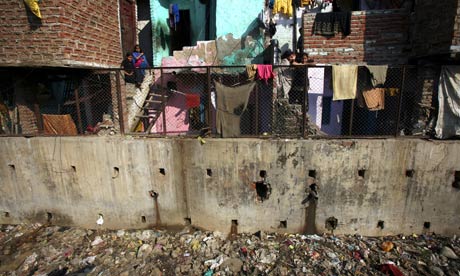Seattle Bag Tax
and Styrofoam Ban
Local
- Northwest Economic Policy Seminar
- Seattle City Council
- Seattle News
- California
- Colorado
- Maryland
- New York
- North Carolina
- Oregon
- Texas
- Washington D.C.
- Australia
- Canada
- China
- India
- Ireland
- Scotland
- South Africa
- United Nations
- Plastic Bags
- The 3 R's
- Survey
- General References
National
International
Topics
India
Fines, Jail or Both for Plastic Bag Use
Last modified on January 20, 2009 by Site Administrator

In 2003, the Indian national parliament passed legislation banning the use, production, distribution, sale and storage of plastic bags made from polythene. The punishment for breaking this law was left up to the jurisdiction of each Indian state with fines ranging from 100,000 rupees ($2,040 USD), jail sentences of up to 7 years or both.
In January 2009, the New Delhi government banned the use of all plastic bags in the capital city, issuing a 100,000 rupee fine and/or 5 years of imprisonment for non-compliant businesses that continue to distribute plastic bags. The legislation prohibits the use of plastic bags, so if the government wishes, it may even penalize individuals who carry plastic bags. The ban covers most shopping areas, hotels, hospitals and restaurants in New Delhi. It is estimated that the capital city’s 16 million residents consume approximately 10 million bags everyday.
The Confederation of Indian Traders were given 10-12 days notice of the ban though they argue that environmentally friendly alternatives are not readily available and the transition will have to come slowly. One of the primary downsides of the bag ban may appear in the labor market because closing the plastic bag manufacturing facilities in the city will put over 1,000,000 people out of jobs.
The government states that there are a number of cloth, jute and paper substitutes available and there is an urgent need to change the mindset of people and prevent plastic bags from clogging up drainage systems in the city, which were attributing to providing a breeding ground for malaria and dengue fever. How quickly the government will follow through with this new legislation remains to be seen.
References
Degradable plastic not so rare from The Times of India, January 18, 2009Provides an overview of the process of using a polymer-based additive to create biodegradable bags. Though the process of making degradable bags is relatively simple, manufacturers are feeling the heat with the passage of the new legislation which prohibits the use of all plastic bags in the city. The author estimates that about 2 million people involved with the manufacture of plastic bags will be unemployed with the new bag ban.
Delhi to outlaw plastic bags from the Guardian, January 16, 2009
Customers and shopkeepers will now face fines or jail time for using polythene bags in New Delhi. As the capital city’s economy boomed with western-style shopping malls, consumption of plastic bags also rose. Threats of malaria and dengue fever from waste that clogs the city’s drainage system have pushed lawmakers to ban plastic bags and issue stiff fines for non-compliant businesses and residents who continue to use plastic bags.
Delhi bans plastic bags, users to be fined or jailed from CNN-IBN, January 16, 2009
The New Delhi government is enforcing a complete ban on plastic bags and those who are found distributing or carrying groceries in plastic bags run the risk of fines or jail time. The ban was implemented in hospitals, shopping centers and restaurants in order to curb people off plastic, which has been around for too long.
Now plastics out of New Delhi from SahilOnline, January 18, 2009
Shopkeepers, restaurateurs and consumers are now prohibited from using plastic bags in New Delhi, under section 5 of the Environmental Protection Act of 1986. Though the cost of alternatives is larger, some Delhiites feel that being eco-friendly is worth the extra expense and that the strict fines or jail time is a natural course of action.
Plastic ban: Government bags jute shop in Dilli Haat from ExpressIndia, January 18, 2009
The lack of alternatives readily available in New Delhi is stirring up some opportunities for businessmen that are starting to open stalls that sell jute bags. The only way to implement the new plastic bag ban will be to encourage people to carry their own eco-friendly bags. The article reports that the government is working on a bigger action plan involving additional RWAs to ban plastic bags and promote use of reusable alternatives.
Indian state outlaws plastic bags from BBC News, August 7, 2003
Discusses India's new ban on plastic bags and its primary implementation in the northern state of Himachal Pradesh.
Plastic bag ban by Indian state from Guardian.co.uk, August 25, 2005
Outlines the potential disadvantages that could be dealt to the labor market by India's ratification of new anti-plastic bag legislation.